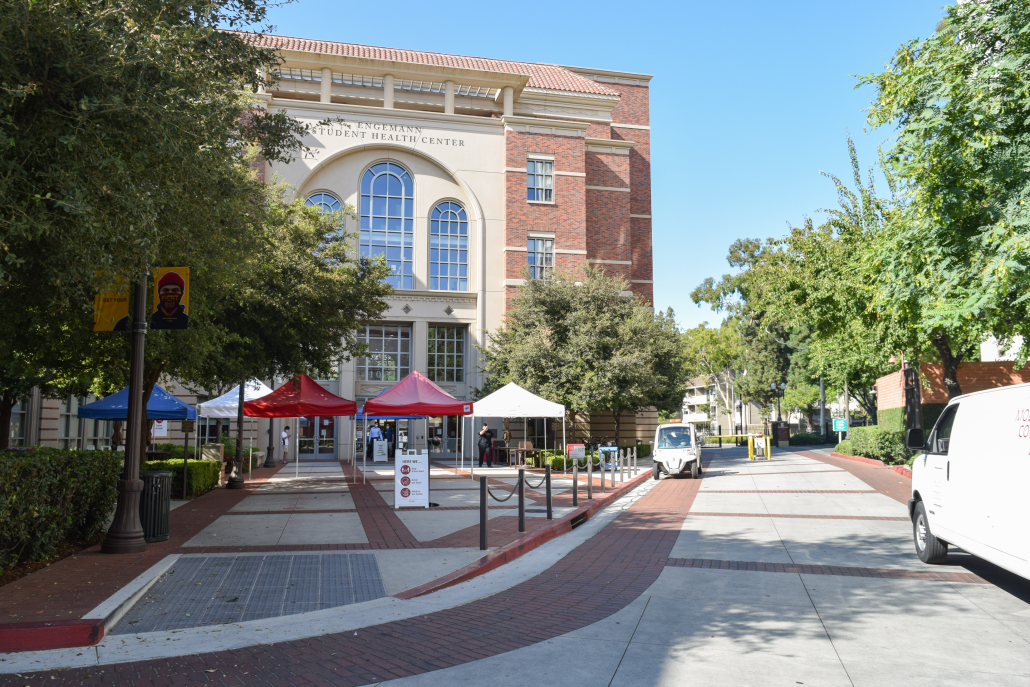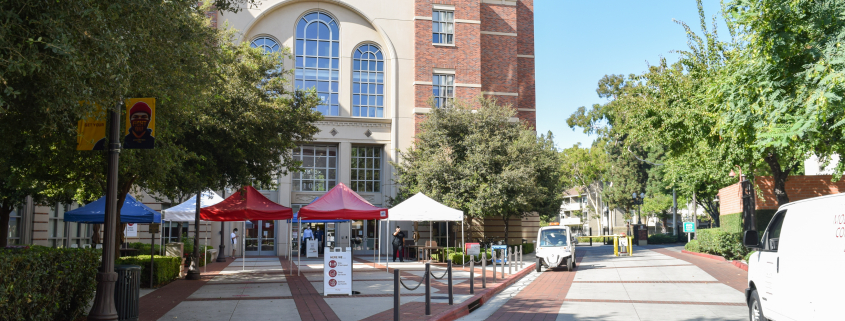Election stress workshops help students

To help students navigate the emotions and stress of a divisive election season, Counseling and Mental Health Services in USC Student Health has offered election stress workshops. Student Health wants the workshops, led by faculty clinicians of the Department of Psychiatry of Behavioral Sciences at Keck School of Medicine, to create community among students during the isolation of the pandemic.
The Daily Trojan spoke with Edden Agonafer, a psychologist and multicultural coordinator at Counseling and Mental Health, about the workshops and how students can navigate stress levels this coming week and the rest of the semester.
The workshops began Oct. 26 and will continue through mid-November, with an extension depending on student demand. Students can sign up to attend through their MySHR portal.
This interview has been edited for length and clarity.
Daily Trojan: Were there demands that resulted in the current workshops?
Edden Agonafer: There were no demands. We really wanted to be proactive this election year in making sure that we really thought about all of our students in general at USC. We wanted to just be proactive and think about these specific supportive spaces.
DT: Could you clarify a bit about the partnership with Student Equity and Inclusion?
EA: All of the cultural centers are under the Student Equity and Inclusion program, so we have a very good working relationship with them and each of their directors and so throughout the year we do a lot of programming and making sure that we provide services to students who are historically underrepresented or underserved.
With this specific election year we got together just to think about what kind of services students can really benefit from. Part of the reason why we did that was that we didn’t want to assume what students needed without really checking in with a) students themselves and then b) also these leaders on campus that are doing a phenomenal job taking care of students.
DT: What have you noticed about students’ mental health during remote learning in the election season? Is there anything particularly unique that stood out to you?
EA: We are sort of a national trend and a lot of students are distressed. A lot of students are limited from being active and social so a lot of everything that you’re doing is done at home. The stress definitely has increased for some individuals and then for those who are already having their own unique challenges, whether that’s around relationships, academics, mental health, it just adds to that. That’s something that I’ve sort of been mindful of is that even as we’re asking people to work from home or be at home, what are the different barriers that we’re not really considering?
DT: Could you talk a little bit about how the workshops themselves are executed?
EA: During the workshop, students are expected to just have their feelings and thoughts validated around this election season, why it’s been so stressful [and] polarizing for a lot of individuals.
We really focus a lot on coping strategies. How are people able to find hope? How are they able to really have a sense of control in what at times feels like there’s no control what’s happening? It’s there to engage community involvement, so for a lot of students who may feel isolated and alone and stressed out with the election and everything else, it’s just another opportunity for them to be with community, to have their feelings and thoughts validated and at the same time to learn about how to resilient and how to have faith in this really challenging time.
DT: What have you observed as some of the general feelings among students attending?
EA: Students who usually attend are very grateful. It’s more so a space where you can say, ‘That makes a lot of sense why I’ve been feeling this way.’ So usually for our students who attend we get pretty good results. We don’t necessarily have a group size limit … so sometimes we have more students sign up some weeks or some days, maybe a little less, but even with those smaller groups, it’s been really effective.
DT: What are some of the biggest stressors that students have shared about the election?
EA: We see every student with different beliefs, different ideas, different political affiliations so it’s really hard to say what’s one stressor. I think a lot of it just ties back to a lot of other social issues that we’ve been seeing but more importantly, how are people able to have hope. It’s not necessarily about the candidates they’re voting for but what’s coming up for them as they think about this election year.
DT: There will be more workshops following the election. Can you talk about your decision for extending them past Nov. 3?
EA: We won’t find out the official results until after a week or so, so students [will] still [be] stressed about the outcome of the election. We will also have a [community gathering] on Wednesday, so each day we’re really intentional on making sure that students have a space to be able to talk. We’ll have a post-election communal gathering space even up until the rest of the semester. Students may still be having mixed feelings or stressed out about the outcome so we want to make sure that that space is still available.
DT: What would you advise students to be doing to take care of themselves and manage stress around the election and politics, this week and in the future?
EA: I often tell students to first of all pay attention to your stress signals [and] to what your body’s telling you. Pay attention to your emotions — they’re valid.
Community’s huge and essential. A lot of people have been separated and scattered and trying to do school and work, but it’s important to seek community support so even if it’s on a phone, online, just having community is really helpful.
Take breaks. We’re all really invested in learning about what’s going on, not just in the U.S. but around the world and it’s been really challenging year with the different news that you hear, as important as it is to stay plugged in, it’s also important to just unplug and give ourselves a mental health break and eat and sleep. There are a lot of committed staff at USC that really want you to be successful so we will never want you to feel alone.

